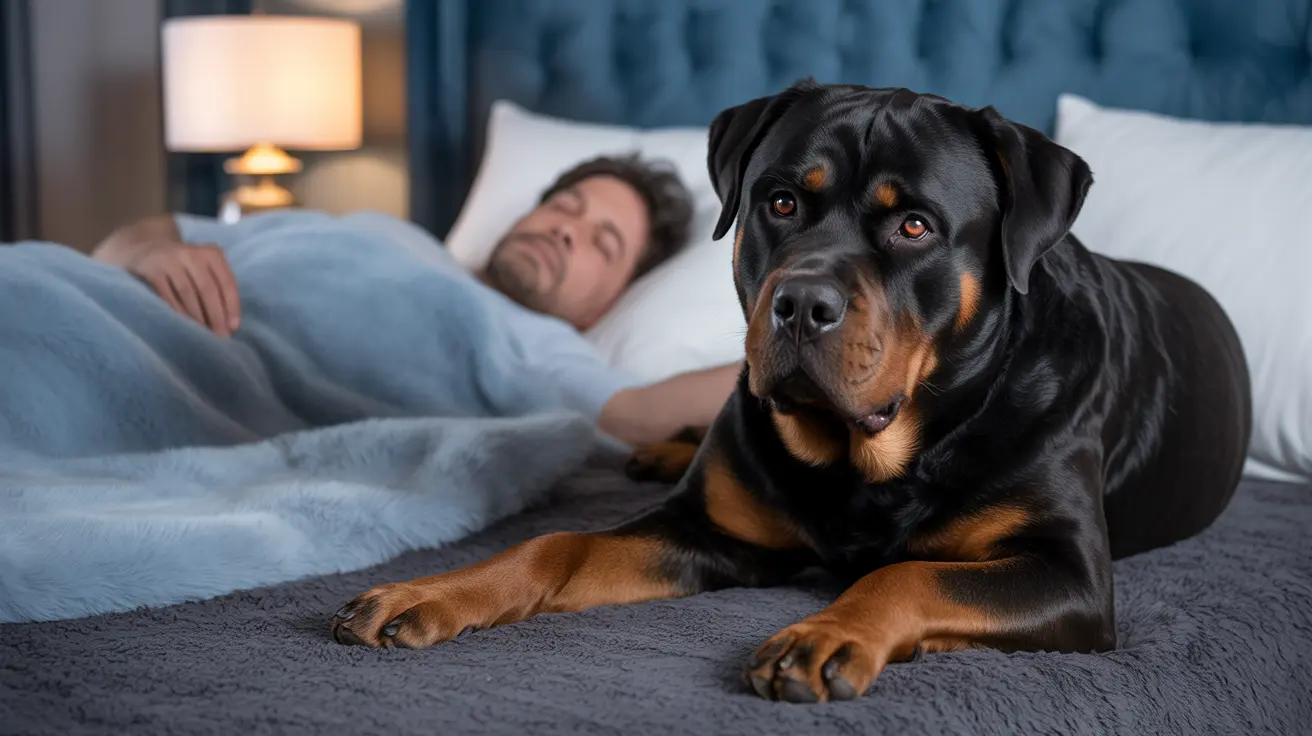The Protective Instinct: Your Dog's Natural Guardian Behavior
Dogs are pack animals by nature, and this ancestral instinct plays a significant role in their nighttime watching behavior. In the wild, pack members would take turns keeping watch while others slept, ensuring the group's safety from potential threats.
This protective behavior is particularly pronounced in breeds with strong guarding instincts, such as German Shepherds, Rottweilers, and Great Pyrenees. These dogs may feel a natural duty to watch over their human family members during vulnerable moments, including sleep.
Emotional Attachment and Bonding
Scientific research has shown that dogs form deep emotional attachments to their owners, similar to the bonds between human parents and children. This attachment often manifests in sleep-watching behavior, as your dog seeks to maintain proximity and connection even during rest periods.
Studies have revealed that dogs with strong attachment bonds to their owners actually experience more restful sleep when near their human companions, showing lower stress levels and increased feelings of security.
Practical Reasons Behind the Watchful Eye
Physical Needs and Daily Routines
Sometimes, your dog's attentive gaze has a simple explanation: they need something. Common reasons include:
- Needing to go outside for a bathroom break
- Hunger, especially if breakfast time is approaching
- Thirst or other basic needs
- Physical discomfort or illness
Environmental Factors and Stimuli
Dogs are naturally responsive to changes in their environment, and their nighttime vigilance might be triggered by:
- Unusual sounds or movements
- Changes in lighting or temperature
- Unfamiliar scents or presences
- Your own sleep movements or noises
When Should You Be Concerned?
While watching behavior is generally normal, excessive vigilance might indicate underlying issues such as:
- Separation anxiety
- General anxiety disorders
- Medical conditions causing discomfort
- Lack of proper exercise or mental stimulation
- Behavioral problems requiring professional attention
Managing Your Dog's Nighttime Watching Behavior
If your dog's watching behavior is disrupting your sleep or causing concern, consider these management strategies:
- Establish a consistent bedtime routine
- Ensure adequate physical exercise during the day
- Provide mental stimulation through training and play
- Create a comfortable sleeping space for your dog
- Consider crate training if appropriate
Frequently Asked Questions
Why does my dog watch me while I sleep?
Dogs watch their owners sleep for various reasons, including protective instincts, emotional attachment, and practical needs like hunger or requiring a bathroom break. This behavior is deeply rooted in their pack mentality and the bond they share with their owners.
Is my dog staring at me during sleep a sign of protection or anxiety?
It can be either. While protective watching is normal and healthy, persistent staring might indicate anxiety, especially if accompanied by other signs of distress like pacing or whining. Context and your dog's overall behavior will help determine the underlying cause.
Can hunger or needing to go outside cause my dog to watch me sleep?
Yes, dogs often watch their sleeping owners when they have physical needs to communicate. This is especially common in the early morning hours when they're anticipating breakfast or need to relieve themselves.
How can I stop my dog from staring at me all night without causing stress?
Establish a consistent bedtime routine, ensure adequate exercise during the day, and create a comfortable sleeping space for your dog. If the behavior persists, consult with a veterinarian or professional trainer for personalized advice.
Does my dog watching me sleep mean they feel a strong emotional bond with me?
Yes, nighttime watching often indicates a strong emotional bond between dogs and their owners. This behavior demonstrates trust, attachment, and a desire to maintain proximity to their human family members, even during rest periods.
Understanding why your dog watches you sleep can deepen your appreciation for the unique bond you share with your pet. While this behavior is typically normal and even endearing, being attentive to changes in your dog's nighttime habits can help ensure their continued well-being and maintain a healthy sleep routine for both you and your furry companion.






